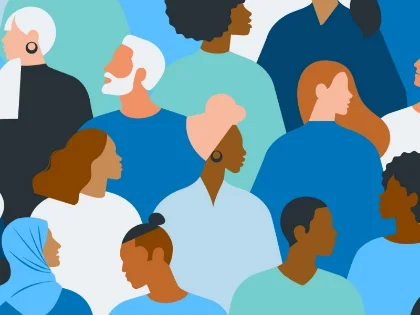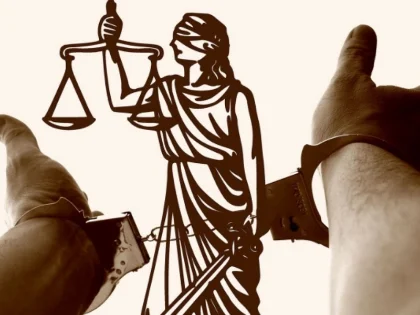What You Need To Know About Attorney-Client Privilege
Attorney-client privilege permits lawyers to successfully represent their clients and promotes candid communication. The privilege does have some restrictions, though. It is imperative for companies to exercise caution in designating confidential communications, keeping legal advice separate from business-related responses, and restricting access to privileged information to those who truly require it. If not, even legitimately shielded materials can be declared inadmissible in court.
1. The customer has the right

2. The lawyer does not possess the necessary rights.
 It is not protected by the attorney-client privilege to communicate with your lawyer at all times. A communication to or from an attorney must be intended to be confidential. Additionally, the conversation must be intended to obtain or provide legal advice. Furthermore, the correspondence must clearly relate to your duties as a company employee.
For instance, talks between ABC Company's accounting manager, Jane Edwards and her in-house lawyer over issues pertaining to the company's tax exposure or liability are probably confidential. However, if she divulges the same material to her department head, who handles unrelated issues, the talk loses its confidentiality.
Furthermore, the privilege does not always protect discussions between a client and family members about a situation that may raise legal issues. Attorney-client privilege has many legal exceptions, but they are all limited by court interpretation and current facts.
It is not protected by the attorney-client privilege to communicate with your lawyer at all times. A communication to or from an attorney must be intended to be confidential. Additionally, the conversation must be intended to obtain or provide legal advice. Furthermore, the correspondence must clearly relate to your duties as a company employee.
For instance, talks between ABC Company's accounting manager, Jane Edwards and her in-house lawyer over issues pertaining to the company's tax exposure or liability are probably confidential. However, if she divulges the same material to her department head, who handles unrelated issues, the talk loses its confidentiality.
Furthermore, the privilege does not always protect discussions between a client and family members about a situation that may raise legal issues. Attorney-client privilege has many legal exceptions, but they are all limited by court interpretation and current facts.
3. It's not unchangeable.
 Without the client's permission, a lawyer cannot disclose communications that the client reasonably believes should be kept private. This privilege is intended to encourage candid and open communication between clients and attorneys in order to guarantee the highest caliber of representation.
Although the privilege covers all private attorney-client conversations, there are some restrictions. The crime-fraud exception is a crucial one, as it stipulates that any discussions a client has with his lawyer about how to perform or conceal a criminal act will no longer be considered privileged.
Furthermore, when a client voluntarily gives up access to private correspondence to a third party, the attorney-client privilege is also waived. Finally, the privilege is limited to conversations with attorneys about matters pertaining to the pursuit of legal counsel. Corporations may also invoke this privilege, but they must do so with the understanding that corporate counsel is acting as outside counsel rather than an internal attorney.
Without the client's permission, a lawyer cannot disclose communications that the client reasonably believes should be kept private. This privilege is intended to encourage candid and open communication between clients and attorneys in order to guarantee the highest caliber of representation.
Although the privilege covers all private attorney-client conversations, there are some restrictions. The crime-fraud exception is a crucial one, as it stipulates that any discussions a client has with his lawyer about how to perform or conceal a criminal act will no longer be considered privileged.
Furthermore, when a client voluntarily gives up access to private correspondence to a third party, the attorney-client privilege is also waived. Finally, the privilege is limited to conversations with attorneys about matters pertaining to the pursuit of legal counsel. Corporations may also invoke this privilege, but they must do so with the understanding that corporate counsel is acting as outside counsel rather than an internal attorney.
4. It's not exclusive.
 Whether particular communications and material disclosures are protected by work product or attorney-client privilege has been the subject of numerous, enduring legal controversies. Generally speaking, unless the client gives permission or it is necessary to further legal representation, privileged discussions and materials cannot be disclosed to non-lawyers.
For instance, when an in-house attorney represents a firm, they may speak with staff members about business-related issues. These discussions are usually confidential as long as they pertain to the company's obligations. If the employee discusses private corporate information with the lawyer in another context, that chat may not be protected.
Similarly, clients cannot expect their attorneys to maintain the privacy of any information on their prior fraudulent or illegal activity. However, if knowing such information can stop or assist in recovering money lost due to fraud or crime, a lawyer has an ethical duty to disclose it the majority of the time. For this reason, it is critical that clients only copy a document containing privileged information to the lawyer and a small group of other individuals.
Whether particular communications and material disclosures are protected by work product or attorney-client privilege has been the subject of numerous, enduring legal controversies. Generally speaking, unless the client gives permission or it is necessary to further legal representation, privileged discussions and materials cannot be disclosed to non-lawyers.
For instance, when an in-house attorney represents a firm, they may speak with staff members about business-related issues. These discussions are usually confidential as long as they pertain to the company's obligations. If the employee discusses private corporate information with the lawyer in another context, that chat may not be protected.
Similarly, clients cannot expect their attorneys to maintain the privacy of any information on their prior fraudulent or illegal activity. However, if knowing such information can stop or assist in recovering money lost due to fraud or crime, a lawyer has an ethical duty to disclose it the majority of the time. For this reason, it is critical that clients only copy a document containing privileged information to the lawyer and a small group of other individuals.






